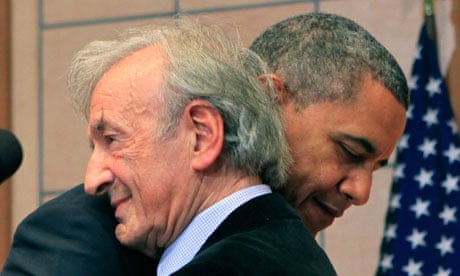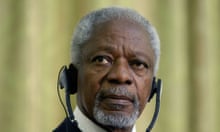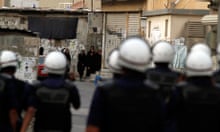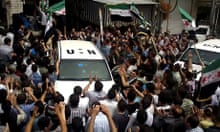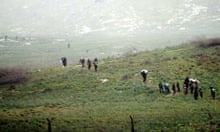President Barack Obama has signed an executive order targeting people and entities who use technology to help authoritarian regimes in Iran and Syria suppress their people.
"Technologies should be in place to empower citizens, not to oppress them," Obama said on Monday at a speech at the Holocaust Memorial Museum in Washington.
Obama was introduced at the museum by Holocaust survivor Eli Wiesel. Obama told Wiesel: "You show us the way. If you cannot give up, if you can believe, then we can believe."
The president said the White House's new "atrocities prevention board" will meet for the first time Monday. He said the board's aim was to better prevent and respond to mass atrocities and war crimes.
Obama said the "seeds of hate" had too often been allowed to flourish. "Too often the world has failed to stop the massacre of innocents on a massive scale," said the president.
Obama's speech came as the US faces calls to orchestrate an international solution to the deadly crackdown on dissidents in Syria. "National sovereignty is never a license to slaughter your people," Obama said.
In the executive order the president said the "malign use of technology" was facilitating human rights abuses in Iran and Syria and was a threat to the national security of the US.
The administration announced new sanctions, including a visa ban and financial restrictions, against a range of Syrian and Iranian agencies and individuals.
The Syrian General Intelligence Directorate, the Syriatel phone company and Ali Mamluk, the director of Syria's general intelligence services, are all subject to the new sanctions. In Iran, the sanctions target the Islamic Revolutionary Guard, the Iranian Ministry of Intelligence and Security, the Law Enforcement Forces of the Islamic Republic of Iran, and Datak Telecom.
While social media and other technologies have been cited as aiding rebellions in countries including Libya and Egypt, other regimes have used technology to track dissidents.
The order blocks people associated with the supply and operation of these technologies from entering the US and seizes and property or assets they have in the US.
Much of the technology used by oppressive regimes was supplied by US firms. Last year the Wall Street Journal reported that McAfee, part of tech giant Intel, had provided content-filtering software used in Bahrain, Saudi Arabia and Kuwait.
A White House statement said the executive order "authorises sanctions and visa bans against those who commit or facilitate grave human rights abuses via information technology … related to Syrian and Iranian regime brutality."
"This tool allows us to sanction not just those oppressive governments, but the companies that enable them with technology they use for oppression, and the 'digital guns for hire' who create or operate systems used to monitor, track, and target citizens," the White House statement said.
Writing on Foreign Policy, former secretary of state Madeleine Albright said the atrocities prevention board was a "clear-eyed and pragmatic attempt to expand our government's toolbox to meet the challenges posed by tyrants who pose an extraordinary threat to their civilian populations."
She continued: "This toolbox is about more than sending in the marines - it is about better intelligence, more focused preventive diplomacy, and the smarter use of coercive pressures that might deter would-be perpetrators from employing mass violence to achieve their political goals."
Aaron David Miller, public policy fellow at the Woodrow Wilson International Center for Scholars and an advisor to six former secretaries of state, said the move was "incremental".
"Obama is making a virtue out of necessity with respect to Syria," he said. "It's an incremental step, an action to buy more time. If you can't pursue a military solution, you might as well."
In terms of Iran, Miller said the move would help build some pressure ahead of talks in Baghdad next month aimed at resolving its nuclear dispute with world powers.
